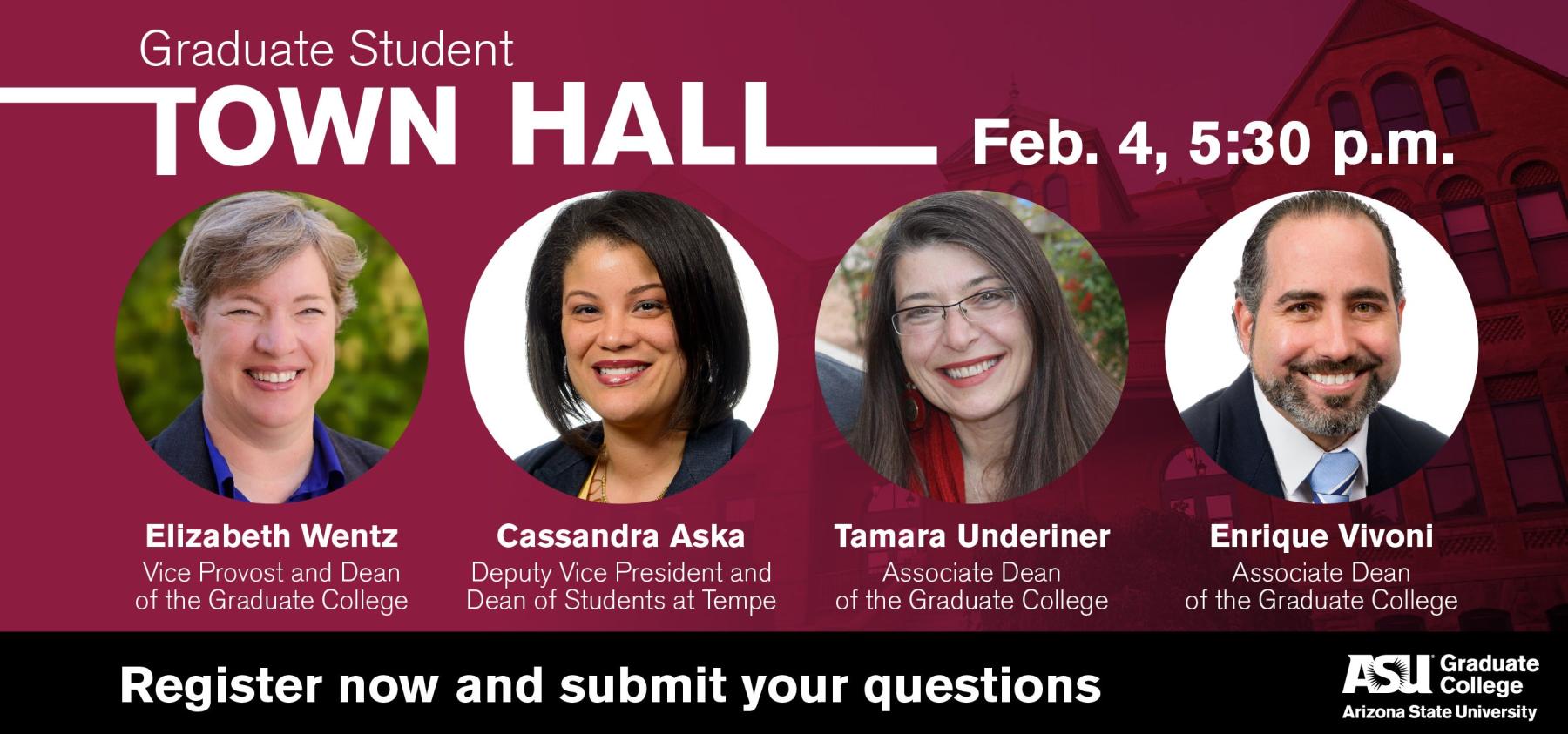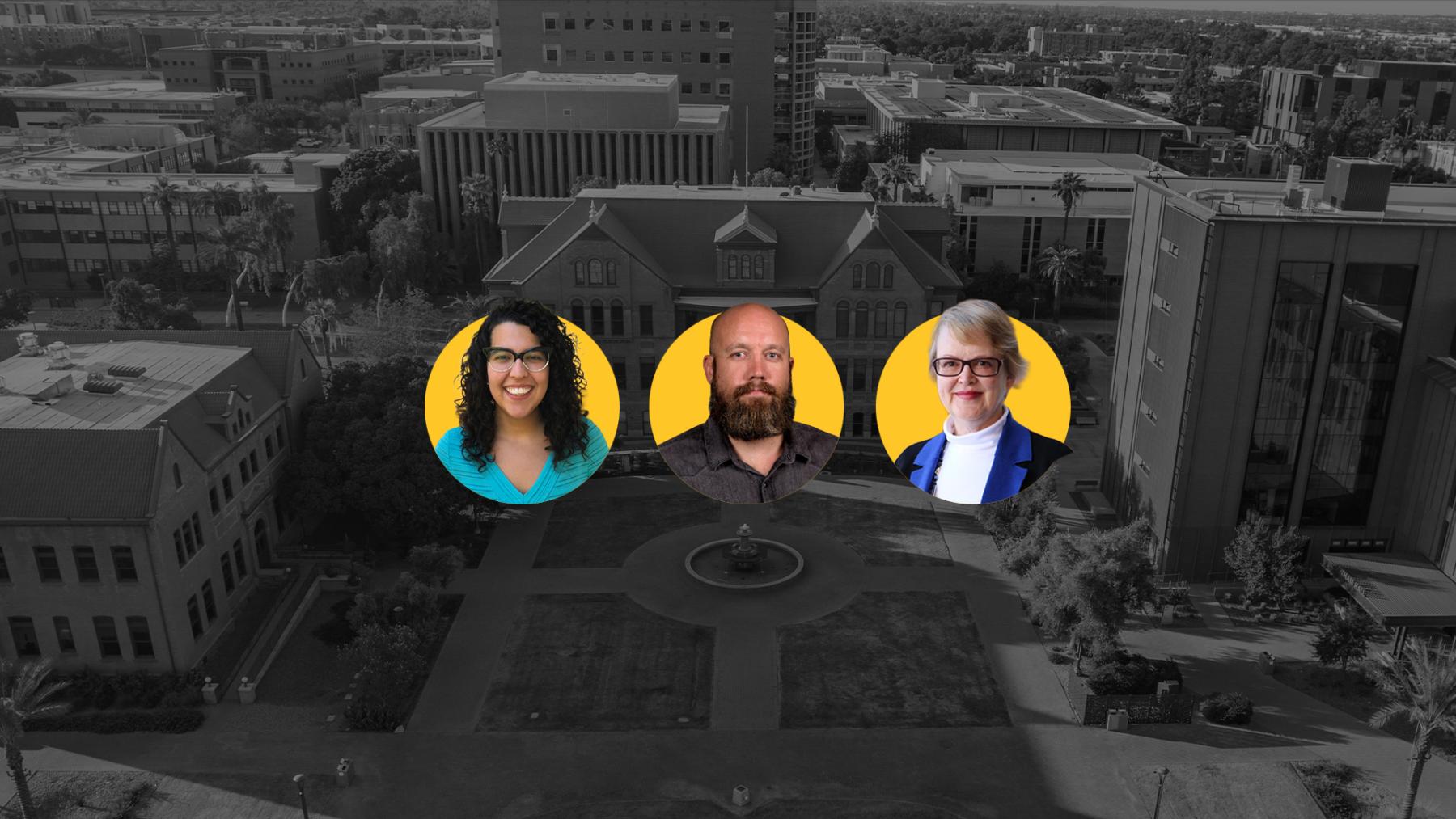
Attend the ASU Graduate Student Town Hall on Thursday, February 4
The Graduate College is pleased to announce the second Graduate Student Town Hall, which will take place on Thursday, February 4 at 5:30 p.m.
It’s your chance to engage virtually with leaders from the Graduate College and Dean of Students, see them answer student questions submitted in January and ask your own questions live.
During the event, ASU leaders will provide an update on the outcomes of the previous town hall and will answer questions submitted by registrants and take questions live, during the event.
The panelist for this Town Hall will be:
Elizabeth Wentz, vice provost and dean of the Graduate College,
Cassandra Aska, deputy vice president and dean of students at Tempe
Tamara Underiner, associate dean of the Graduate College
Enrique Vivoni, associate dean of the Graduate College
The Graduate College is dedicated to enriching and advancing the graduate school experience for all students.
All graduate students who wish to attend can register here.
We look forward to seeing you there!
More stories from the Graduate Insider

Graduate education is an adventure
About eighteen months ago, I set out on a journey walking the islands of the Dodecanese during a sailing trip in Türkiye and Greece with several friends. Along the way, I found winding paths, timeless villages and breathtaking views of sea and sky. That experience got me thinking about how adventure shows up in other parts of life, especially in learning.

Promoting resilience and well-being in Ghana — and across the globe

From practice to presentation: How to deliver a winning faculty job talk
Giving a job talk can feel like the most high-stakes presentation of your academic job search. It’s not just a research seminar—it’s your opportunity to demonstrate vision, communication skills, and fit within a department. In a recent Lunch and Learn, faculty members Associate Professor in School of International Letters and Cultures, Anita Huizar-Hernandez, Professor in School of Life Sciences Jeffrey Jensen, and Professor in Department of Physics Patricia Rankin shared concrete strategies to help graduate students and postdocs succeed as future faculty candidates.